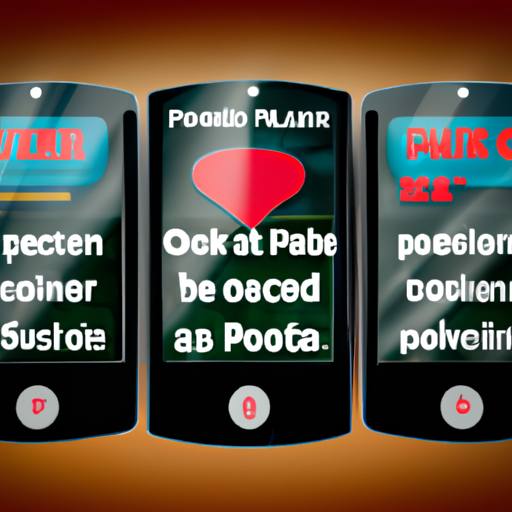"Experience the Thrill of Medieval Gambling - Where Fortune Favors the Bold!"
The History of Gambling in Medieval Europe
Gambling has been a preferred pastime in Europe for the reason that Middle Ages. During this time, gambling was seen as a suitable type of leisure and even inspired by some rulers. People would gamble on card games, cube games, board games, and more. Gambling homes have been widespread all through Europe throughout this era and many individuals loved participating in these actions.
The hottest game of probability throughout the Middle Ages was Hazard, which is believed to have originated in France. This game concerned rolling two cube and betting on the end result. Other common games included Primero (a card game), Hoca (a board game just like backgammon) and Basset (one other card game).
In addition to those conventional kinds of gambling, lotteries additionally turned common throughout this time. Lotteries have been used to raise money for public works initiatives or other causes. They may very well be organized by governments or personal people and infrequently had giant prizes related to them.
Although gambling was typically accepted throughout the Middle Ages, it did include its personal set of dangers. Many individuals misplaced their fortunes as a consequence of unhealthy luck or dishonest on the tables. As a consequence, legal guidelines have been handed that restricted how a lot one individual may wager and who may take part in sure sorts of gambling actions.
Despite these restrictions, gambling remained a preferred exercise all through Medieval Europe till trendy instances when it started to say no as a consequence of altering social attitudes in the direction of gaming actions. Today, whereas there are nonetheless a lot of alternatives for individuals to get pleasure from gambling recreationally, it is now not seen as a suitable type of leisure in many components of the world.
How Gambling Influenced the Social Structure of Medieval Europe
Gambling has been an element of European tradition for the reason that Middle Ages. During this time, it had a big affect on the social construction of medieval Europe. Gambling was seen as an vital type of leisure and recreation for individuals from all walks of life. It offered a possibility to work together with others in a relaxed environment, which helped to create robust bonds between people and communities. Additionally, gambling may very well be used to settle disputes or resolve conflicts with out resorting to violence. This allowed for more peaceable decision of disagreements and strengthened relationships amongst members of society. Finally, gambling additionally served as a source of revenue for many individuals throughout this era, offering them with monetary stability and security. All these components mixed made gambling an integral half of medieval European society.
Exploring the Popularity of Dice Games During the Middle Ages
The Middle Ages have been a time of nice enjoyable and leisure, with cube games being one of the preferred actions. From easy board games to complicated gambling tournaments, these thrilling pastimes offered hours of enjoyment for individuals from all walks of life. Whether you have been a noble or a peasant, there was one thing for everybody! So why did cube games grow to be so common throughout this era? Let's check out some doable causes.
First off, cube games have been straightforward to study and play. With only a few primary guidelines and items, anybody may choose up the game shortly and begin having enjoyable instantly. Plus, they did not require any particular tools or supplies - all you wanted was a set of cube and your creativeness!
Second, cube games provided a component of probability that made them extremely thrilling. Players by no means knew what would occur subsequent; it was all the time thrilling to roll the cube and see the place destiny took you! This unpredictability stored players coming again for more.
Finally, many medieval societies had strict legal guidelines towards gambling however allowed sure sorts of cube games so long as no money modified arms. This meant that even those that could not afford to gamble nonetheless had entry to the joys of taking part in these entertaining pastimes.
So there you may have it: three key components that helped make cube games so common throughout the Middle Ages. Whether you are searching for a night of enjoyable or simply wish to expertise a bit of historical past, give one of these basic games a try in the present day!
Examining the Role of Chance and Fate in Medieval Gambling Practices
Gambling has been a preferred pastime for the reason that Middle Ages, and probability and destiny have all the time performed an vital function in these practices. In medieval instances, gambling was seen as a method to take a look at one's luck and fortune, with many believing that it may even affect their future. Chance and destiny have been typically invoked when taking part in games of probability reminiscent of cube or playing cards, with players hoping for good luck or divine intervention to help them win. While some noticed gambling as a type of leisure, others believed that it may very well be used to foretell the long run or achieve perception into the unknown. Regardless of the way it was seen, probability and destiny have been integral parts of medieval gambling practices.
Investigating the Impact of Gambling on Feudalism in Medieval Europe
Gambling has lengthy been an element of life in Medieval Europe, and its impression on feudalism was important. From the rise of skilled gamblers to the use of gambling as a type of taxation, gambling had an simple affect on the social and financial construction of medieval society.
The most blatant impact of gambling on feudalism was the emergence of skilled gamblers. These people have been typically members of the the Aristocracy who used their wealth and standing to achieve entry to exclusive gaming circles. As they turned more profitable, these gamblers started to build up giant quantities of money which allowed them to buy land and other property from poorer nobles. This created a brand new class of rich landowners who may problem conventional energy constructions inside feudal societies.
In addition, gambling additionally served as a source of income for a lot of rulers throughout this era. Kings and lords would typically impose taxes on games reminiscent of cube or playing cards in order to raise funds for their very own coffers. This offered a further source of revenue that may very well be used to finance army campaigns or construct public works initiatives.
Finally, gambling additionally performed an vital function in shaping common tradition throughout this time interval. Games like chess and backgammon have been broadly loved by each peasants and aristocrats alike, offering leisure for all lessons whereas reinforcing current social hierarchies. Gambling additionally helped unfold concepts about luck and probability all through Europe, influencing how individuals seen their lives and fortunes.
Overall, it is clear that gambling had a serious impression on feudalism in Medieval Europe. Through its capability to create new lessons of rich landowners, present extra sources of income for rulers, and form common tradition, gambling helped form the social and financial panorama of this period in profound methods.
Analyzing the Relationship Between Religion and Gambling in Medieval Times
Religion and gambling have been intertwined since medieval instances. While some spiritual leaders condemned gambling as a sin, others noticed it as a suitable type of leisure. In the Middle Ages, gambling was seen as each an ethical concern and a sensible one. On the one hand, it may very well be used to raise money for charitable causes or to offer funds for public works initiatives. On the other hand, it may result in extreme spending and debt. Despite this ambivalence, gambling remained common in many components of Europe throughout the Middle Ages.
In common, most Christian denominations frowned upon gambling as a consequence of its potential for immorality and monetary smash. However, there have been exceptions: sure monasteries allowed their monks to gamble on particular events reminiscent of festivals or holidays. Similarly, some bishops permitted clergy members to play games of probability in the event that they did so with moderation and with out risking an excessive amount of money.
At the identical time, some spiritual figures argued that gambling may very well be helpful if performed responsibly. For instance, St Thomas Aquinas believed that average quantities of gaming may help individuals loosen up after lengthy days of work or research. He additionally steered that taking part in games of probability may educate individuals vital classes about luck and destiny – one thing which he felt was important for non secular development.
Overall, faith and gambling had a fancy relationship in medieval instances. While most spiritual authorities seen it with suspicion, there have been those that acknowledged its potential advantages when practiced responsibly.
Understanding the Economic Significance of Gambling During the Middle Ages
Gambling throughout the Middle Ages was an vital financial exercise, offering a source of revenue for many individuals. It additionally served as a type of leisure and socialization, permitting individuals to come back collectively in pleasant competitors. Gambling offered a possibility for retailers to extend their wealth by taking dangers with their money. This allowed them to take a position in new ventures or develop current ones. Additionally, gambling helped stimulate native economies by creating jobs and producing income from taxes on winnings. Finally, it gave rulers a method to raise funds for army campaigns and other initiatives with out having to rely solely on taxation. All in all, gambling performed a necessary function in the economic system of the Middle Ages, helping to create wealth and prosperity all through Europe.
Evaluating the Legal Status of Gambling in Medieval Europe
Gambling in Medieval Europe was a preferred pastime! Although there have been no legal guidelines particularly prohibiting it, the Church frowned upon gambling and seen it as sinful. Despite this, individuals continued to gamble for leisure and even used it as a type of forex. Gambling games reminiscent of cube, playing cards, and board games have been widespread amongst all social lessons. While some rulers tried to ban sure kinds of gambling, they have been largely unsuccessful as a consequence of its widespread recognition. Ultimately, gambling in Medieval Europe was tolerated however not formally sanctioned by legislation.
Assessing the Influence of Aristocrats on Gambling Habits During the Middle Ages
The Middle Ages have been a time of nice change and growth, together with the emergence of aristocrats who had an affect on gambling habits. Aristocrats typically gambled for high stakes, taking part in games reminiscent of cube, playing cards, and chess. They additionally sponsored tournaments and other occasions that inspired individuals to gamble. This led to elevated recognition of gambling amongst all lessons of society throughout this era. Aristocrats additionally set the tone for acceptable habits when it got here to gambling; they frowned upon extreme consuming or dishonest whereas taking part in. As a consequence, gambling was seen as a decent pastime in many areas throughout the Middle Ages.
Comparing Different Types of Gambling Across Various Regions in Medieval Europe
Gambling was a preferred pastime in Medieval Europe, with differing types of games loved throughout numerous areas. From cube and playing cards to board games and sports betting, individuals had a lot of options for leisure! In England, the preferred game was Hazard, which concerned rolling two cube and predicting the end result. Meanwhile, in France, players preferred taking part in Hoca – a card game just like modern-day Blackjack. Italy was dwelling to Lo Giuoco del Lotto D'Italia – an early model of Bingo – whereas Germany favored Pochspiel – a type of board game involving cash or counters. No matter the place you have been in Medieval Europe, there was certain to be some type of gambling out there!
Exploring Gender Roles and Attitudes Towards Gambling During this Period
Gambling has been a preferred pastime all through historical past, and the 18th century was no exception. During this era, gender roles have been strictly outlined and attitudes in the direction of gambling various relying on who was taking part in. Men have been typically seen as more socially acceptable to gamble than ladies, with some even viewing it as an vital half of their masculine identification. Women, nevertheless, have been typically discouraged from collaborating in gambling actions as a consequence of societal expectations that they need to be targeted on home duties as an alternative. Despite these restrictions, there are data of feminine gamblers throughout this time interval, suggesting that attitudes in the direction of gambling amongst ladies may have been more relaxed than beforehand thought. Ultimately, the 18th century noticed a variety of attitudes in the direction of gambling based mostly largely on gender roles and social norms.
Investigating How Technology Shaped Gambling Practices in Medieval Times
Gambling has been a preferred pastime for hundreds of years, and expertise has performed an vital function in shaping the way in which individuals gamble. In medieval instances, gambling practices have been closely influenced by technological advances such because the invention of taking part in playing cards and cube. These tools allowed gamblers to play more complicated games with better ease and comfort than ever before.
Playing playing cards first appeared in Europe throughout the 14th century, and shortly turned a favourite type of leisure amongst all lessons of society. The 4 fits – hearts, diamonds, golf equipment, and spades – represented totally different social lessons or professions. This gave players a way of identification whereas they gambled, permitting them to really feel like half of a bigger neighborhood. Playing playing cards additionally enabled individuals to play more complicated games that required technique and ability slightly than simply luck.
Dice have been one other common type of gambling in medieval instances. They offered a simple approach for individuals to wager on their luck with out having to depend on any particular abilities or data. Dice may very well be used to play easy games reminiscent of Hazard and even more complicated ones like Backgammon.
Technology had a serious impression on how individuals gambled in medieval instances. Playing playing cards and cube made it simpler for individuals to get pleasure from gambling actions with out having to fret about dishonest or being taken benefit of by unscrupulous operators. Furthermore, these tools allowed players to interact in more subtle kinds of gaming that required technique and ability slightly than simply luck. As a consequence, gambling was a lot more gratifying and accessible throughout this era than it had been beforehand.
Discussing Moral Issues Surrounding Gambling During This Era
Gambling has been a preferred pastime for hundreds of years, however it may also be a source of ethical debate. During this period, there are various moral concerns to take into consideration when discussing gambling. For instance, is it fair to gamble with money that might in any other case be used for more productive functions? Is it morally acceptable to make use of gambling as a type of leisure or ought to it solely be performed in moderation? Additionally, what duty do casinos and other institutions have to make sure responsible gaming practices? These are all vital questions to contemplate when discussing the morality of gambling throughout this period. Ultimately, every particular person should determine for themselves whether or not they imagine gambling is an applicable exercise or not.
Examining How Art Depicted Gambling Scenes from Medieval Europe
Gambling has been a preferred pastime in Europe for the reason that Middle Ages. Art from this era typically depicted gambling scenes, offering us with an fascinating glimpse into how individuals gambled throughout that point.
Medieval artwork sometimes confirmed gamblers taking part in cube or card games reminiscent of tarot and trionfi. These photographs normally featured two to 4 players seated round a table, with one individual performing because the banker. The paintings additionally included depictions of cash being exchanged between players, indicating that money was concerned in these games.
In addition to depicting gambling actions, medieval artwork additionally highlighted the implications of extreme gambling. Some items confirmed individuals shedding their possessions as a consequence of unhealthy luck on the gaming tables, whereas others portrayed characters affected by poverty after squandering all their wealth on gambling.
Overall, medieval artwork supplies us with an intriguing take a look at how Europeans gambled throughout this period. It reveals not solely what sorts of games have been performed but additionally the potential dangers related to them.
Q&A
1. What function did gambling play in Medieval Europe?
Gambling was a preferred pastime throughout the Middle Ages, with individuals taking part in cube and card games for leisure and generally at the same time as a type of funding. Gambling was additionally used to settle disputes between nobles or to determine who would win a match. It was not unusual for kings and other high-ranking officers to gamble away their fortunes on games of probability.
2. How widespread was gambling in Medieval Europe?
Gambling was fairly widespread all through Medieval Europe, particularly among the many the Aristocracy. Dice have been generally used for gambling, whereas card games reminiscent of tarot and primero have been additionally common. Gambling may very well be discovered at courtly occasions, tournaments, festivals, inns, taverns, and personal properties.
3. Was gambling authorized in Medieval Europe?
In common, sure; nevertheless, there have been some restrictions positioned on sure sorts of gambling by native authorities or spiritual leaders. For instance, some cities banned cube games as a consequence of their affiliation with vice and immorality. In addition, many church buildings frowned upon any type of gaming that concerned money or wagering of items or companies.
4. Who gambled in Medieval Europe?
Gambling was common amongst all lessons of society in Medieval Europe—from peasants to royalty—though it tended to be more prevalent among the many higher lessons as a consequence of their better entry to wealth and leisure time. Women have been additionally recognized to take part in gambling actions alongside males.
5. What sorts of games have been performed in Medieval Europe?
The most typical game performed throughout this era was Hazard (also referred to as “Hazards”), which is believed to have originated from Arabic nations earlier than being introduced into Europe by Crusaders getting back from the Holy Land across the twelfth century AD. Other common games included Primero (a precursor to trendy poker) and numerous kinds of cube games reminiscent of Tabula (just like backgammon). Card games reminiscent of Tarot have been additionally broadly performed throughout this period.
6. Were there skilled gamblers in Medieval Europe?
Yes; though they weren't essentially known as "professional" gamblers on the time, there have been definitely people who made a residing off of their ability at taking part in numerous games of probability or betting on outcomes of sporting occasions like jousting tournaments or horse races. These people typically had rich patrons who offered them with monetary backing so they might pursue their ardour full-time with out having to fret about making ends meet by other means of employment.
7. Did medieval Europeans use particular tools for gambling?
Yes; cube cups and boards have been generally used for enjoying dice-based games like Hazard or Tabula, whereas decks of playing cards particularly designed for enjoying Tarot or Primero may very well be bought from retailers specializing in gaming provides throughout a lot of Western Europe throughout this era. Specialized tools reminiscent of counters (used for maintaining observe of factors scored) and tokens (used for putting bets) have been additionally employed when vital relying on the game being performed on the time.
8. Was dishonest a difficulty throughout medieval gambling?
Cheating was undoubtedly a difficulty throughout medieval instances; nevertheless, it wasn't all the time thought of mistaken because it wasn't seen as stealing however slightly simply one other method to achieve a bonus over one's opponents when taking part in a game of probability or skill-based competitors like jousting tournaments or archery contests the place luck may play a significant factor in figuring out the end result regardless of how expert one may be at these actions themselves.. As such, cheaters typically obtained away with their misdeeds except caught red-handed by another person current on the occasion itself – normally both one other participant or referee/choose overseeing proceedings – main them into potential hassle if found doing so afterwards as an alternative..
9 .What punishments existed for these caught dishonest whereas gambling?
Punishments various relying on each the severity of the offense dedicated and jurisdiction underneath which it occurred; nevertheless, typically talking fines ranging wherever from confiscation/forfeiture of winnings up till imprisonment/execution may probably be imposed upon anybody convicted responsible after being accused/caught dishonest whereas collaborating inside any type exercise involving wagers/bets taking place inside medieval European societies..
10 .Were there any legal guidelines regulating gambling in Medieval Europe?
Yes; legal guidelines relating to gambling various drastically relying on area/jurisdiction however sometimes revolved round stopping extreme losses incurred by players due both immediately by manipulation/fraudulent practices performed by operators working institutions internet hosting these actions - together with casinos - together with oblique measures taken towards these participating inside stated actions themselves through taxation levied upon winnings obtained therein..
11 .Did faith affect attitudes in the direction of gambling in Medieval Europe?
Yes; Christianity closely influenced attitudes in the direction of gambling all through a lot medieval European societies given its teachings regarding morality & sinfulness related to indulging inside such actions deemed inappropriate in accordance church doctrine.. This led many non secular figures condemning participation thereof amongst followers while concurrently making an attempt dissuade others from partaking identical regardless of lack enforceable laws prohibiting identical outright..
12 .Was there organized crime associated to gambling in Medieval Europe?
Organized crime associated particularly in the direction of unlawful operations conducting illicit kinds gaming did exist albeit restricted scope in contrast what we see in the present day given relative shortage resources out there then versus now permitting criminals take benefit alternatives introduced thereby.. That stated although nonetheless doable find proof gangs working out shadows offering companies in any other case unavailable public area thus enabling them generate income by nefarious means outdoors legislation enforcement's purview ..
13 .How did governments view gambling in Medieval Europe?
Governments seen gambling in another way relying location & prevailing political local weather current therein; nevertheless general opinion appeared largely destructive given ethical implications related identical coupled potential social unrest attributable to giant sums money altering arms amongst individuals engaged inside identical... This resulted quite a few makes an attempt regulate industry various levels success finally ensuing blended bag outcomes terms precise impression achieved thereby ..
14 .What impact did expertise have on gambling in Medieval Europe? Technology had comparatively little direct impact upon conventional kinds gaming practiced all through a lot medieval European societies given lack technological developments out there then in contrast present day standards... However not directly new innovations allowed unfold information sooner than ever before thus growing consciousness ranges amongst inhabitants regards availability totally different options open them ought to select partake identical ..






